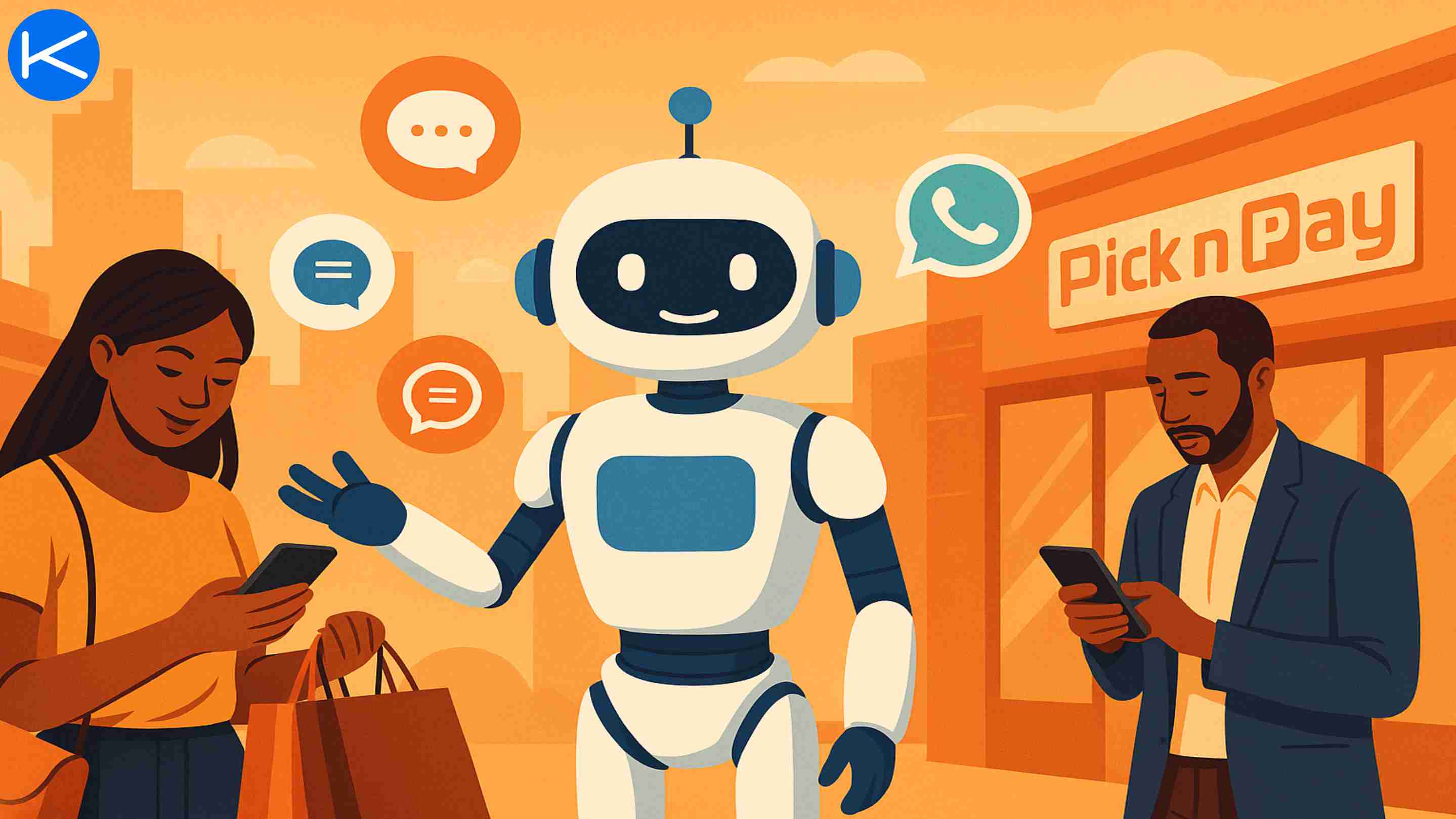Lethabo Moroka
10 months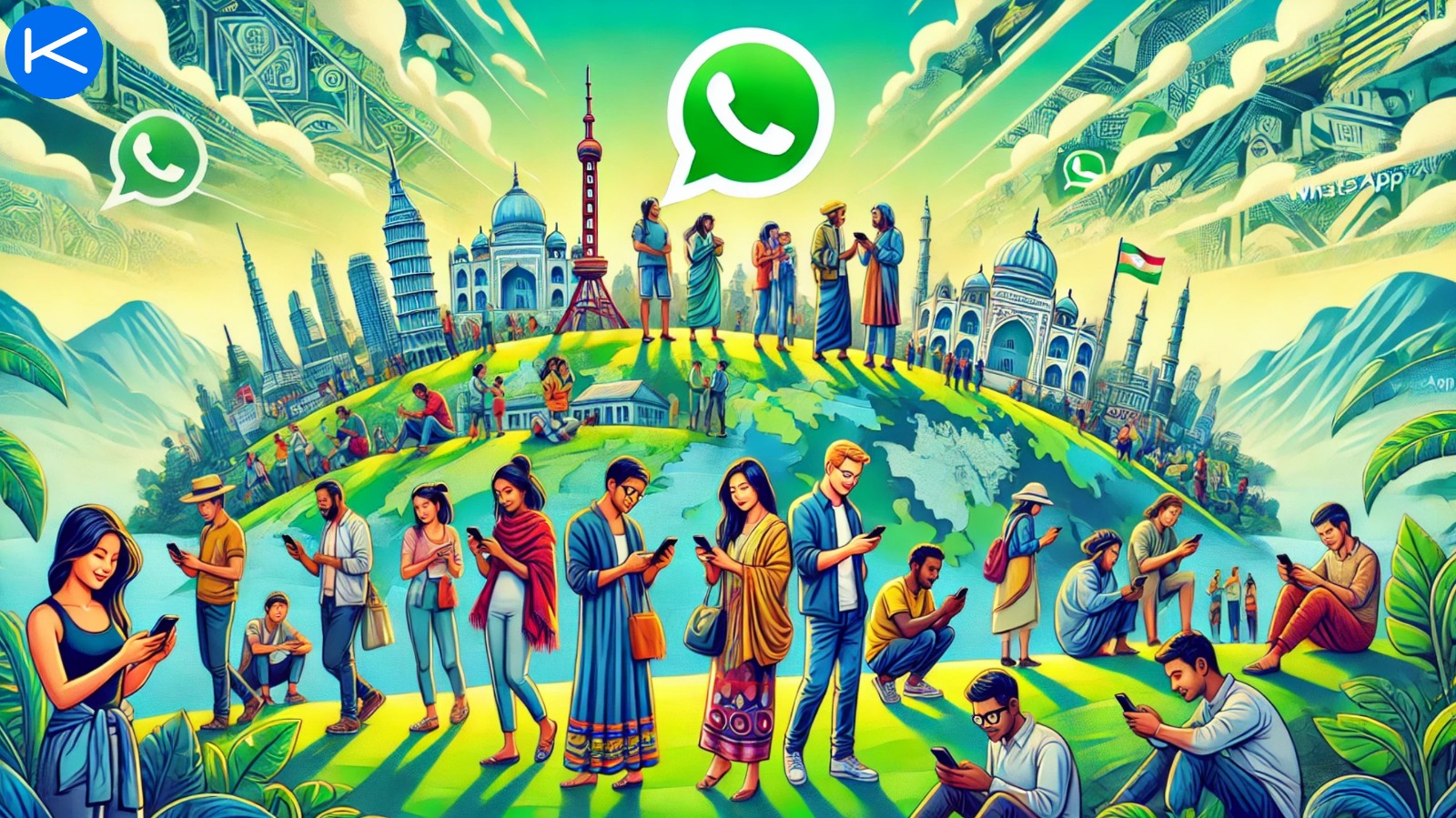
Navigating the World of WhatsApp Bots: A Guide to Easier Customer Connections
WhatsApp isn’t just a place to send funny GIFs and family updates anymore; it’s a powerhouse for customer engagement. With its global reach to over two billion users, it offers businesses a direct line to their customers, making it an essential tool for boosting interaction and driving sales.
However, while WhatsApp can open doors to countless conversations, setting up your own business chatbot can be a maze of technical specifications and rigid approval gates. This blog dives into the nitty-gritty of these challenges, detailing what it takes to build and deploy a WhatsApp bot and how you can bypass some of the headaches with smarter solutions. Buckle up, because we’re about to make your journey a whole lot smoother!
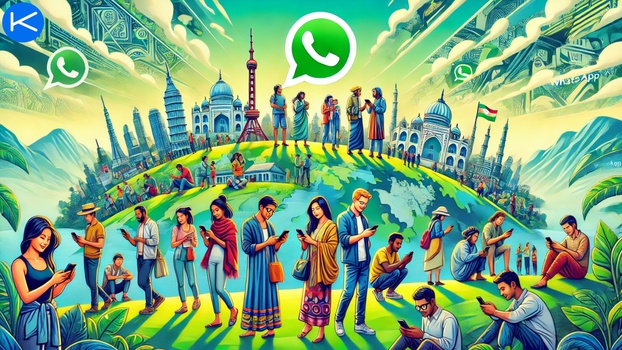
On this article we are going to focus on the following:
- Why WhatsApp?
- The Challenge of Building a WhatsApp Bot
- Alternative Solutions: Chatbot Service Providers
- Integrating AI with Ease: KaraboAI and WhatsApp
- How to Deploy a Custom WhatsApp Chatbot on KaraboAI
Why WhatsApp?
WhatsApp has become more than just a messaging app; it's a vital tool for businesses looking to enhance their customer interaction. Here’s why integrating WhatsApp into your business strategy can be a game-changer:
- Ubiquity and Familiarity: In 2024, WhatsApp has reached over 2.78 billion unique users worldwide. WhatsApp's widespread adoption across over 180 countries means your business can reach customers almost anywhere in the world. The app’s interface is familiar to millions, lowering the barrier for customers to interact with your business.
- Direct and Personalized Communication: WhatsApp allows for direct communication between businesses and customers. This one-on-one interaction fosters a personal connection, enabling businesses to tailor their communications to individual customer needs and preferences, which enhances customer satisfaction and loyalty.
- High Engagement Rates: Unlike emails that might sit unread, WhatsApp messages have a high open and read rate. Notifications make it more likely that your messages will be seen and acted upon quickly, making it an effective tool for timely promotions and customer support.
- Versatility in Messaging: From text and images to voice messages and videos, WhatsApp supports various media formats, making it incredibly versatile for conveying different types of messages and information, enhancing the overall customer experience.
- End-to-End Encryption: WhatsApp offers end-to-end encryption, ensuring that communications between your business and your customers remain secure and private. This security feature is crucial for building trust, particularly when handling sensitive information.
The Challenge of Building a WhatsApp Bot
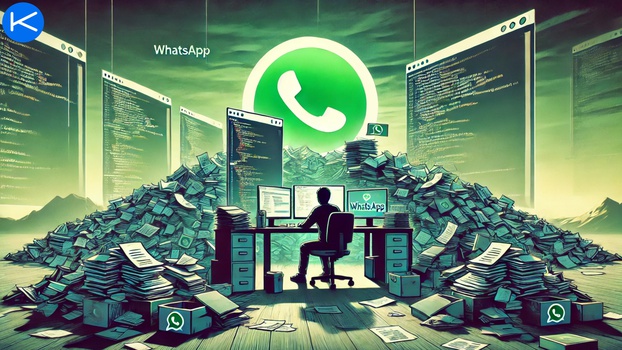
Building a custom WhatsApp bot presents an attractive opportunity for businesses, promising automated, personalized customer interactions at scale. The appeal lies in the ability to streamline communication, provide instant customer support, and push relevant content and promotions directly to users' phones. This can significantly enhance the user experience and boost operational efficiency. You can read more on this link👈🏾.
However, transforming this appealing concept into reality is fraught with challenges, particularly when it comes to navigating the Meta approval process. Here are some of the complexities and hurdles businesses often encounter:
- Strict Compliance Requirements: Meta requires that all bots comply with a stringent set of guidelines that cover everything from the bot's functionality to user privacy and data security. Adhering to these requirements can be a daunting task, especially for businesses without extensive legal and technical expertise.
- Rigorous Evaluation of Intentions: During the approval process, Meta meticulously evaluates the intended use of the bot. This means that businesses must clearly define and justify each interaction their bot is designed to perform. Ambiguities or perceived violations of Meta's policies can lead to delays or outright rejections.
- Long Waiting Times and Uncertainty: The approval process can be lengthy and unpredictable. Many businesses report waiting several weeks to months only to face rejections without detailed explanations. This uncertainty can stall marketing strategies and customer service improvements.
- Real-World Frustrations: Anecdotally, many businesses have shared their frustrations online. For instance, a small e-commerce store might spend months developing a chatbot only to have their application rejected due to an unclear user consent mechanism. Another common complaint involves the difficulty of aligning a bot’s automated responses with the strict guidelines set by Meta, leading to multiple revisions and resubmissions.
These hurdles can make the process of deploying a WhatsApp bot not just challenging but also potentially discouraging, especially for small to medium-sized enterprises lacking the resources to navigate complex regulatory environments.
Alternative Solutions: Chatbot Service Providers
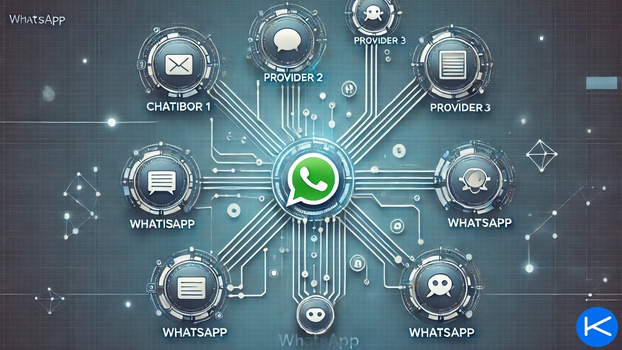
For businesses looking to leverage WhatsApp without navigating the cumbersome approval process directly, turning to established chatbot service providers offers a viable alternative. These providers handle the intricacies of compliance and integration, allowing businesses to focus on crafting their customer interactions.
Notable Providers Include:
- Twilio: Known for its robust API offerings, Twilio allows businesses to build versatile communication solutions, including WhatsApp bots, with relative ease.
- MessageBird: Another leading service that offers WhatsApp chatbot capabilities, ensuring businesses can automate conversations without deep technical expertise.
- Infobip: Specializing in omnichannel communication, Infobip provides a platform to manage WhatsApp alongside other messaging services, streamlining customer interactions across channels.
While these providers simplify the technical and bureaucratic hurdles of deploying a WhatsApp bot, they come with their own set of limitations, particularly for businesses looking to implement AI-driven solutions:
- Limited Customization: Most off-the-shelf solutions from these providers are not AI-based, which means they offer limited customization options. Businesses are often restricted to predefined templates and workflows, which may not suit their specific needs or the unique demands of their customers.
- Integration Challenges: For companies that have already invested in AI technologies or have developed custom chatbots on other platforms, integrating these advanced capabilities with standard service provider offerings can be problematic. These providers typically support basic automated responses rather than complex, learning AI systems.
- Generic User Experiences: Non-AI bots tend to provide more generic user experiences that may not adapt or respond to customer behavior as effectively as AI-driven bots. This can lead to less engaging interactions and potentially diminish the customer experience.
Choosing the right service provider requires balancing the ease of setup and compliance with the need for advanced, personalized communication capabilities that AI can offer.
Integrating AI with Ease: KaraboAI and WhatsApp
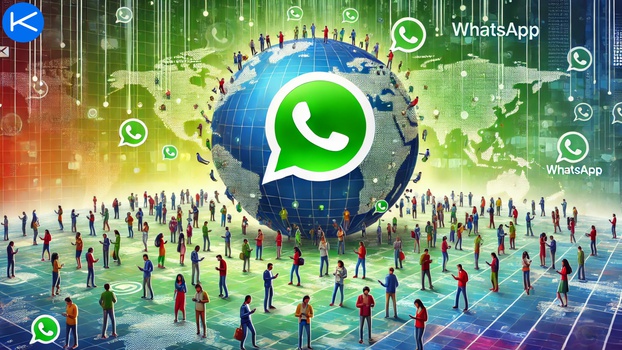
For businesses eager to deploy sophisticated, AI-driven chatbots on WhatsApp without the technical and bureaucratic hassle, KaraboAI emerges as a standout solution. Here’s how KaraboAI simplifies the integration process:
Streamlined Approval: KaraboAI is a registered service provider with Meta, which means they handle the intricate approval processes. This removes the burden from businesses, allowing them to focus on designing their chatbot without worrying about compliance and policy issues.
Integration Steps:
- Bot Creation: Start by building your chatbot using KaraboAI’s intuitive platform. You can customize your bot’s responses, capabilities, and personality to match your business’s unique needs.
- Connect to WhatsApp: Once your bot is ready, link it to WhatsApp through KaraboAI’s interface. The platform guides you through connecting your business’s WhatsApp account, ensuring seamless integration.
- Deployment and Testing: After integration, deploy your chatbot and conduct testing to ensure it interacts effectively with users. KaraboAI provides tools to monitor interactions and refine your bot’s performance based on real user data.
Benefits of Using KaraboAI:
- No Need for Technical Expertise: KaraboAI’s user-friendly platform means you don’t need in-depth programming knowledge to build or deploy your WhatsApp bot. This is a significant advantage over building a bot from scratch, which requires extensive coding skills.
- Faster Time to Market: By eliminating the lengthy approval processes and reducing the development time, KaraboAI allows businesses to launch their WhatsApp bots much quicker than if they were to start from scratch or go through other service providers.
- Advanced AI Capabilities: Unlike basic bots offered by some other providers, KaraboAI supports sophisticated AI functionalities, including natural language processing and machine learning. This enables businesses to provide more dynamic and contextually aware interactions, enhancing the customer experience.
- Cost-Effective: Using KaraboAI is generally more cost-effective than hiring developers to build a custom bot or integrating third-party AI services, as it provides a comprehensive, all-in-one solution.
With KaraboAI, deploying an AI-driven WhatsApp bot becomes a straightforward, accessible process, empowering businesses to harness the full potential of automated customer interactions without the usual complexities.
How to Deploy a Custom WhatsApp Chatbot on KaraboAI

Creating a custom WhatsApp chatbot can significantly enhance your business's ability to engage with customers in real-time. The process leverages the WhatsApp API (Application Programming Interface), which connects directly with WhatsApp Business, allowing for the creation and management of chat conversations. This is the same API utilized by KaraboAI to deliver AI-enhanced chatbots that can be seamlessly deployed on WhatsApp. Before diving into the creation process, there are a few prerequisites you need to ensure are in place:
Pre-Requisites - What You Need Before You Can Start:
- A Non-New Facebook (Meta) Account: Ensure you have an active Facebook account that wasn’t created recently to facilitate a smoother integration process.
- A KaraboAI Account and at Least One Chatbot: If you don’t already have a chatbot, follow this guide to create your first AI chatbot. Remember, when designing your AI chatbot, clear instructions and effective prompting are crucial—incorporate these essential tools to enhance interaction.
- A New Phone Number: You will need a brand new phone number that is not currently linked to any WhatsApp or Business WhatsApp account. This helps avoid any potential conflicts during setup.
Once you have these elements in place, you’re all set to begin creating your custom WhatsApp chatbot.
Setting Up a Custom WhatsApp Chatbot with KaraboAI
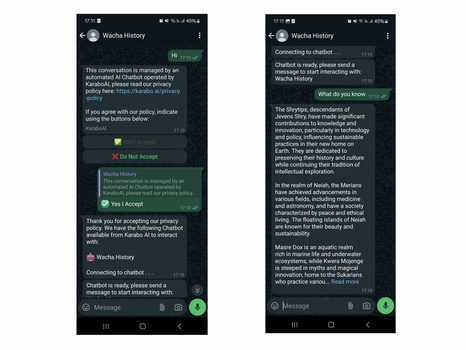
Setting up a custom WhatsApp Chatbot through KaraboAI involves a straightforward process that allows you to integrate directly with WhatsApp using your Meta account. Here's how to get started:
- Navigate to WhatsApp Setup: From your KaraboAI dashboard, access the WhatsApp setup page by clicking on the WhatsApp icon. Note that a paid Karabo subscription is required to utilize these features.
- Connect Your Meta Account:
- Integration Steps:
- Grant KaraboAI access to your WhatsApp Business Account (WABA) and obtain the WABA number.
- Provide the WABA, the phone number you want to activate, and a PIN to proceed with integration.
- Receive and provide a verification code sent via SMS.
- Select the chatbot you wish to integrate.
- Add a payment method directly with WhatsApp/Meta for uninterrupted service.
- Integration Steps:
- Register Your WhatsApp Number:
- At the bottom of the setup page, register a new phone number (not previously used on WhatsApp) and bond it to your WABA. Include a six-digit PIN for security and your business display name.
- Enter the required details, receive a verification code on your phone, and input it to complete the setup.
- Add Your Chatbot:
- Once verified, navigate to the WhatsApp verification page, click on "Add First Chatbot," and select your chatbot from the dropdown menu. This setup allows you to manage, add, or remove multiple chatbots linked to the same number.
- Test Your Chatbot:
- After everything is set up, message your chatbot to ensure it is functioning correctly and engaging with users as intended.
This process integrates your KaraboAI-built chatbot with WhatsApp, enabling seamless customer interactions directly through the popular messaging platform. For a more detailed guide on how to create a custom WhatsApp chatbot, including step-by-step instructions and additional tips, click here to read the full article.
Final Thoughts
KaraboAI stands out by offering a seamless and efficient pathway to integrating sophisticated AI chatbots with WhatsApp. By eliminating complex approval hurdles and providing powerful AI tools, KaraboAI enables businesses to enhance customer interactions with minimal effort and technical expertise.
Try KaraboAI today and experience the ease of integrating advanced AI chatbots into your communication strategy. Don’t let technical complexities hold you back.


